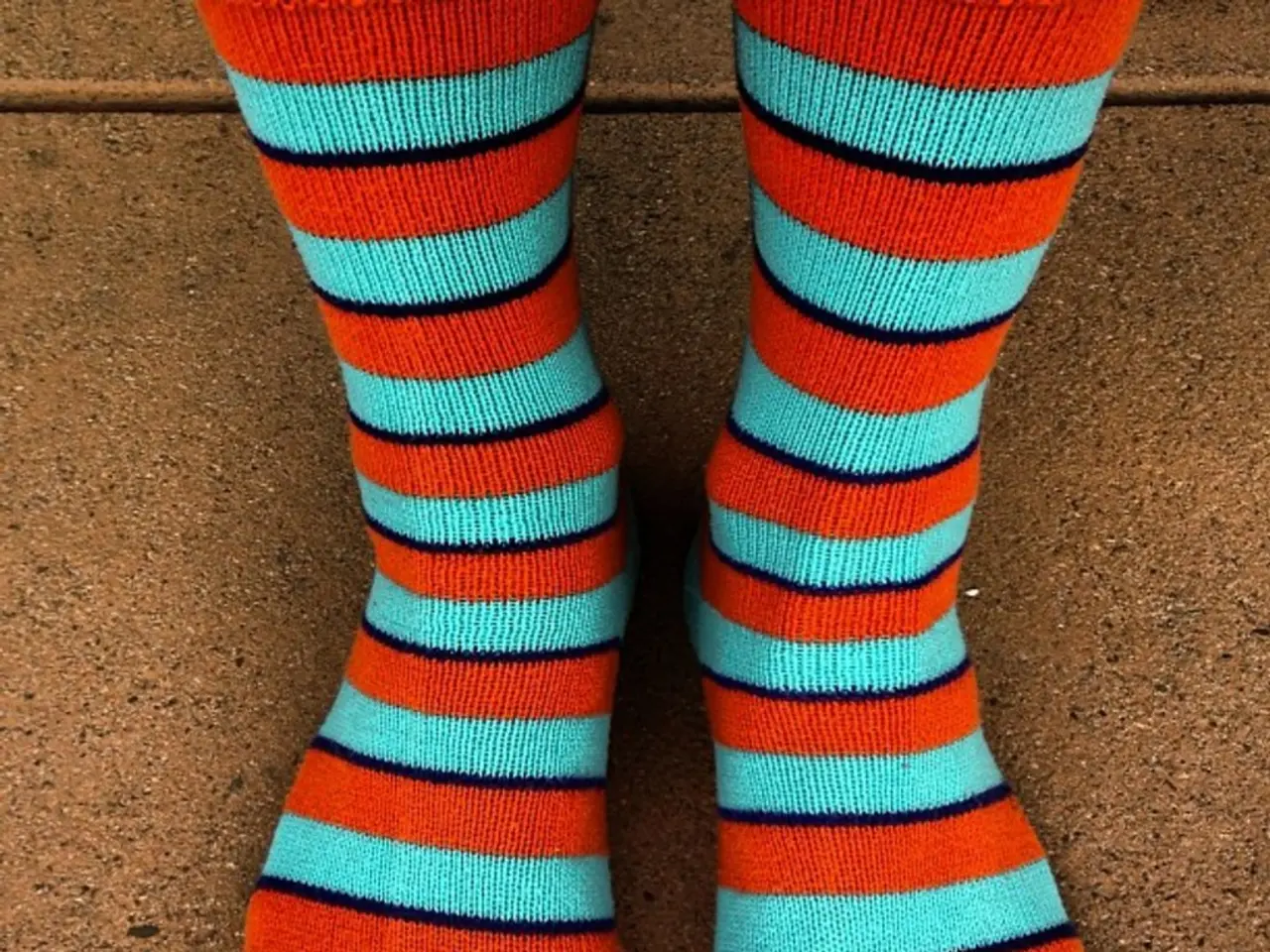Sitting for extended periods often leads to swollen feet. Here's a fix.
Swollen feet can be a bothersome and painful condition, often caused by excess fluid trapped in the foot region, a condition known as Edema. This article provides a list of effective home remedies for treating swollen feet.
Firstly, leg elevation is a simple yet effective method. Raising your feet above heart level several times daily helps reduce fluid buildup by encouraging blood and lymph flow back toward the heart.
Wearing graduated compression stockings (20-30 mmHg) can also improve circulation and prevent fluid accumulation in the lower legs. These stockings are readily available and can be purchased from various stores.
Cool compresses can provide relief by constricting blood vessels and reducing inflammation. Apply a cool, damp cloth or cold pack (not ice directly) to swollen feet for comfort.
Hydration and diet play a crucial role in managing Edema. Drink plenty of water to prevent fluid retention and reduce salt intake to limit sodium-related swelling. Consuming potassium-rich foods like bananas and spinach can help balance fluids.
Light massage upward toward the heart can promote lymphatic drainage and circulation while avoiding excessive pressure on swollen areas.
Natural diuretics and anti-inflammatories, such as barley water and coriander seed infusion, can help eliminate excess fluid and reduce swelling.
Regular low-impact exercises like walking or swimming improve circulation and reduce fluid pooling in the feet.
Epsom salt, a household chemical compound (Magnesium sulfate), is another affordable home remedy for treating swollen feet. To use Epsom salt, fill a small bucket or foot tub with warm water, add a couple of teaspoons of Epsom salt, and soak the affected foot for 10-20 minutes.
However, it is important to note that while these remedies can provide relief, it is essential to see a doctor if you have swollen feet, as it could indicate a serious health issue. Delaying a visit to a doctor can be harmful.
Submerging your feet in an ice bath is another effective method to treat swollen feet. Cold water improves blood and oxygen circulation in the feet and prevents fluid buildup. Contrast hydrotherapy (alternating hot and cold water) can also help reduce swelling in feet.
Research suggests that sitting for a long time can cause leg swelling due to the way blood moves and pushes fluid out of blood vessels and into leg tissues. Therefore, it is advisable to take regular breaks and move around to prevent this.
Edema can be caused by serious health conditions such as thyroid disorder, heart failure, kidney disease, liver disease, lung disease, and varicose veins. It is essential to consult a Podiatrist, Vein and skin specialist, Physiotherapist, General Physician, or Geriatrician for Edema.
A study by Dr. A Mooventhan and Dr. L Nivethitha concludes that contrast hydrotherapy is effective for managing pain caused by swollen feet. This finding supports the use of contrast hydrotherapy as a home remedy for treating swollen feet.
In conclusion, these home remedies help manage swelling by improving circulation, reducing fluid retention, and addressing inflammation. By incorporating these remedies into your daily routine, you can find relief from the discomfort of swollen feet.
- Science shows that edema, or swollen feet, can be caused by chronic kidney disease, respiratory conditions, cardiovascular health issues, and autoimmune disorders.
- In the workplace-wellness context, maintaining good health-and-wellness practices, including fitness-and-exercise and nutrition, can help prevent or manage edema.
- Apart from home remedies, therapies-and-treatments such as medication, surgery, or lifestyle changes may be necessary for managing medical-conditions that cause edema.
- Skin-care is also important for overall health-and-wellness, as some skin-conditions like eczema or psoriasis may lead to fluid retention and swollen feet.
- Mental-health is closely linked to physical health, and chronic stress or anxiety can worsen symptoms of edema. Therefore, stress management techniques and counseling might be beneficial.
- Certain medications, such as nonsteroidal anti-inflammatory drugs (NSAIDs) or diuretics, can help reduce swelling caused by edema or other chronic-diseases.
- Regular check-ups with a doctor are important to rule out underlying medical-conditions causing edema and to manage any chronic-diseases effectively.
- With proper management, people with chronic-kidney-disease, cancer, or other chronic-diseases can live healthy, productive lives without the constant discomfort of swollen feet.
- Respiratory-conditions like asthma or chronic obstructive pulmonary disease (COPD) may affect lung function, which can lead to fluid accumulation in the feet and subsequent swelling.




